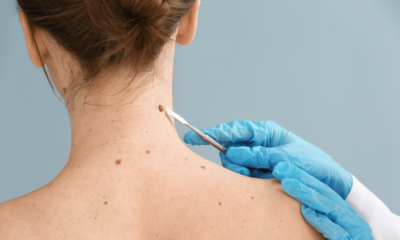New guidance published by the MHRA, which appears to recognise the value of real-world evidence in clinical trials, has been welcomed as a step in the right direction.
The Medicines and Healthcare products Regulatory Agency (MHRA) has published new guidance for researchers hoping to use real-world data sources in clinical studies to support regulatory decisions.
The guidance outlines how greater use of real-world data for clinical trials could help patients access new medicines sooner and offer a more cost-effective way of running these trials.
However, the MHRA has yet to accept real-world and observational data on its own.
Vast amounts of real-world data are routinely collected from patients using the healthcare system. This includes electronic patient health records, and disease and patient registries.
Information generated from real-world data is rarely used to demonstrate the effectiveness of a medicine before it is approved, with interventions usually subject to randomised control trials (RCTs), which are widely thought of as the “gold standard” in scientific evidence.
Campaigners, doctors and scientists have repeatedly called for regulators to consider real-world evidence when it comes to cannabis-based medicines. RCTs are designed for single-compound pharmaceuticals, making them unsuitable for whole-plant cannabis products, which contain other 500 compounds.
While regulatory bodies have called for more “robust” and “high quality” evidence of safety and efficacy before cannabis medicines can be made more widely available, the UK has a growing body of real-world data through schemes such as Project Twenty21 and the UK Medical Cannabis Patient Registry.
The MHRA said this new guidance follows a consultation with stakeholders from the pharmaceutical industry, academic research, trade associations, patient organisations/charities, healthcare providers and regulatory organisations.
Dr June Raine, MHRA Chief Executive said: “When used in this innovative way, real-world data has the potential to make a huge difference when it comes to bringing medicines through clinical trials to patients.
“With fewer or even no trial-specific visits, consenting trial participants don’t have to travel long distances to get to their appointments. And with fewer logistical hurdles, real world data could make it more feasible for trial sponsors to repurpose existing medicines for new conditions.
“Because of this, and the growing need to find more cost-effective ways of conducting clinical trials, our new series of guidelines focuses on how to use real-world evidence to aid regulatory approval, helping to bring medicines to the patients who need them, sooner.”
Professor Mike Barnes, chair of the UK Cannabis Industry Council and the UK Medical Cannabis Clinicians Society (UKMCCS), said it was welcome news that the body was beginning to recognise the value of real-world evidence.
He commented: ‘I am delighted that at last the MHRA has appreciated the value of real world evidence. Hopefully there is realisation that plant medicines in particular need a full evidence appraisal and are not treated as pharmaceuticals – which they are clearly not. A welcome injection of common sense before Christmas.
“Let’s hope that this new spirit of intelligent appraisal now spreads to NICE and they are able to assess cannabis properly.”
Mags Houston, head of Project Twenty21, which is aiming to build the UK’s largest body of evidence for the safety and efficacy of medical cannabis said: “We definitely feel it’s a step in the right direction – and moves us towards what we’ve been saying for a long while now with regard to the need to take real-world evidence seriously and not rely so heavily on RCTs alone.
“The research we’ve done with paediatric epilepsy and medical cannabis is a really clear example of this. Project Twenty21 is another example of real-world data that we hope will help influence NICE guidance in the future and open up NHS funding for medical cannabis.”
Michael Lynskey, chief research officer for Drug Science added: “Make no mistake, real-world data is extremely valuable, especially when one considers the obstacles that prevent researchers from conducting traditional, large-scale trials, such as the enormous and restrictive costs.
“The MHRA’s guidance is a welcome step in the right direction. It will hopefully lead to increased acceptance of evidence derived from real world data, including observational and registry data on the safety and effectiveness of novel treatments.
“Such data from our own Project Twenty 21, which indicates the real world effectiveness of medicinal cannabis for improving general health and quality of life, illustrate why this progress matters.”
[activecampaign form=33]

 News6 months ago
News6 months ago
 Science5 months ago
Science5 months ago
 Industry6 months ago
Industry6 months ago
 News6 months ago
News6 months ago
 News5 months ago
News5 months ago
 Health4 months ago
Health4 months ago
 News5 months ago
News5 months ago
 Health3 months ago
Health3 months ago












